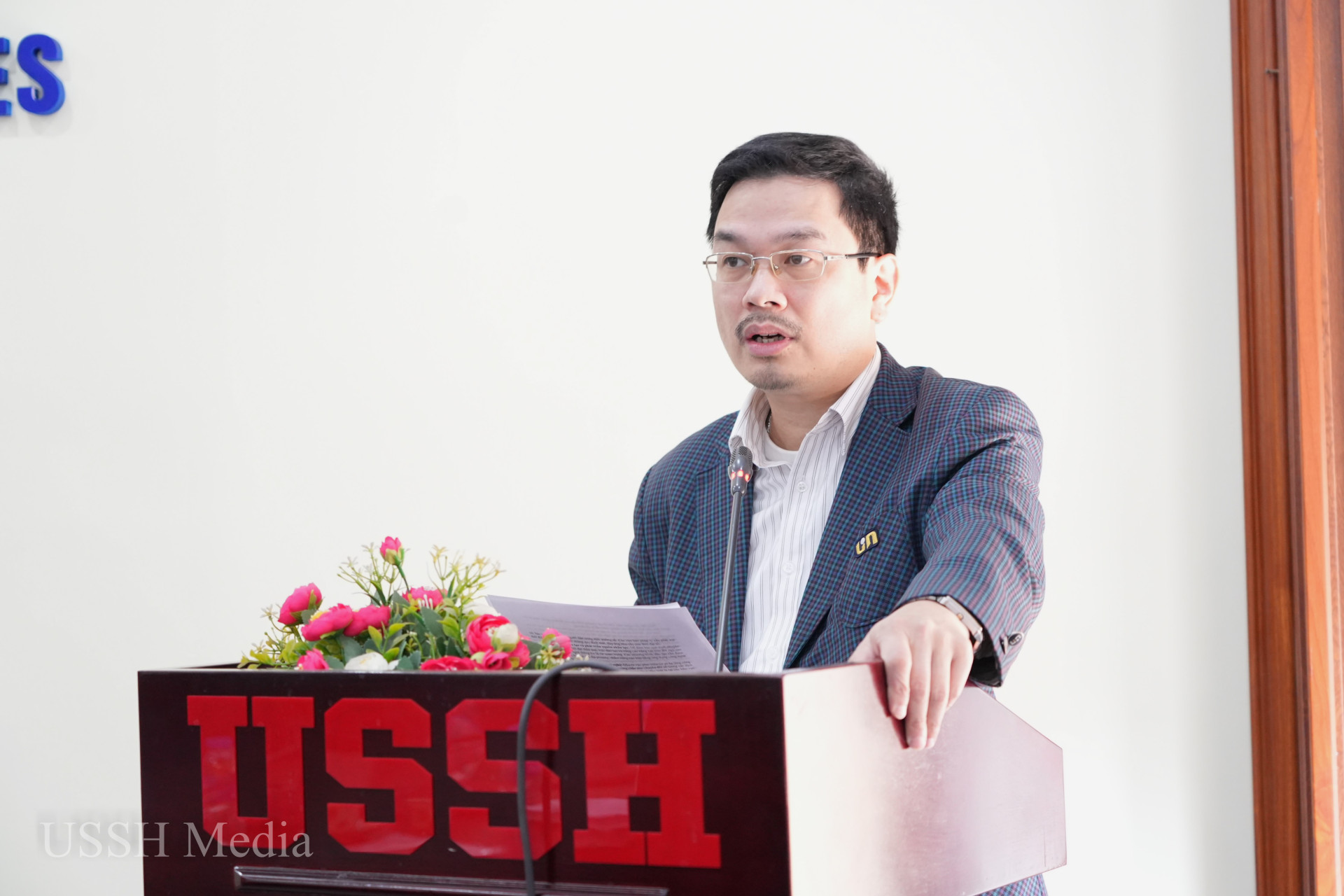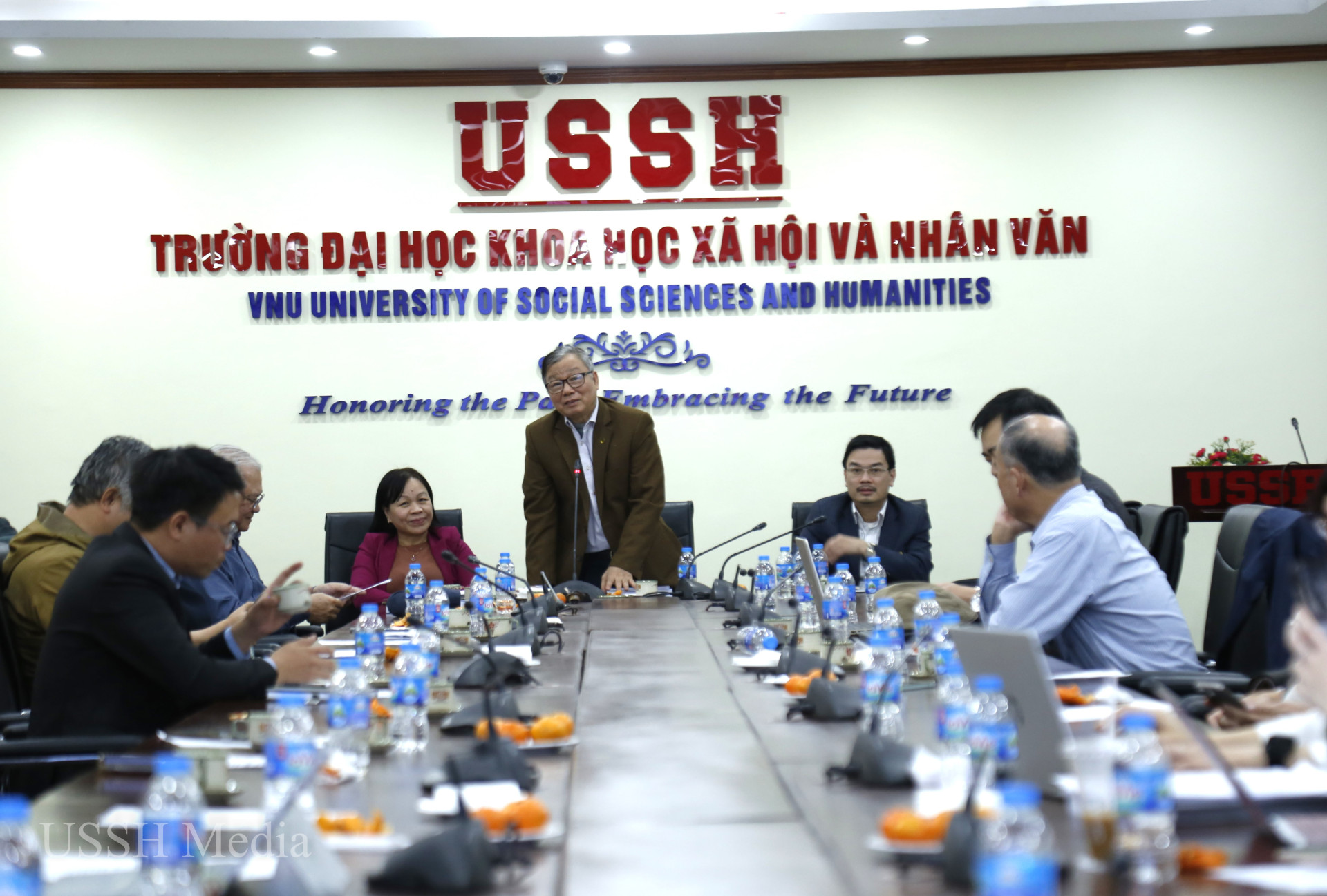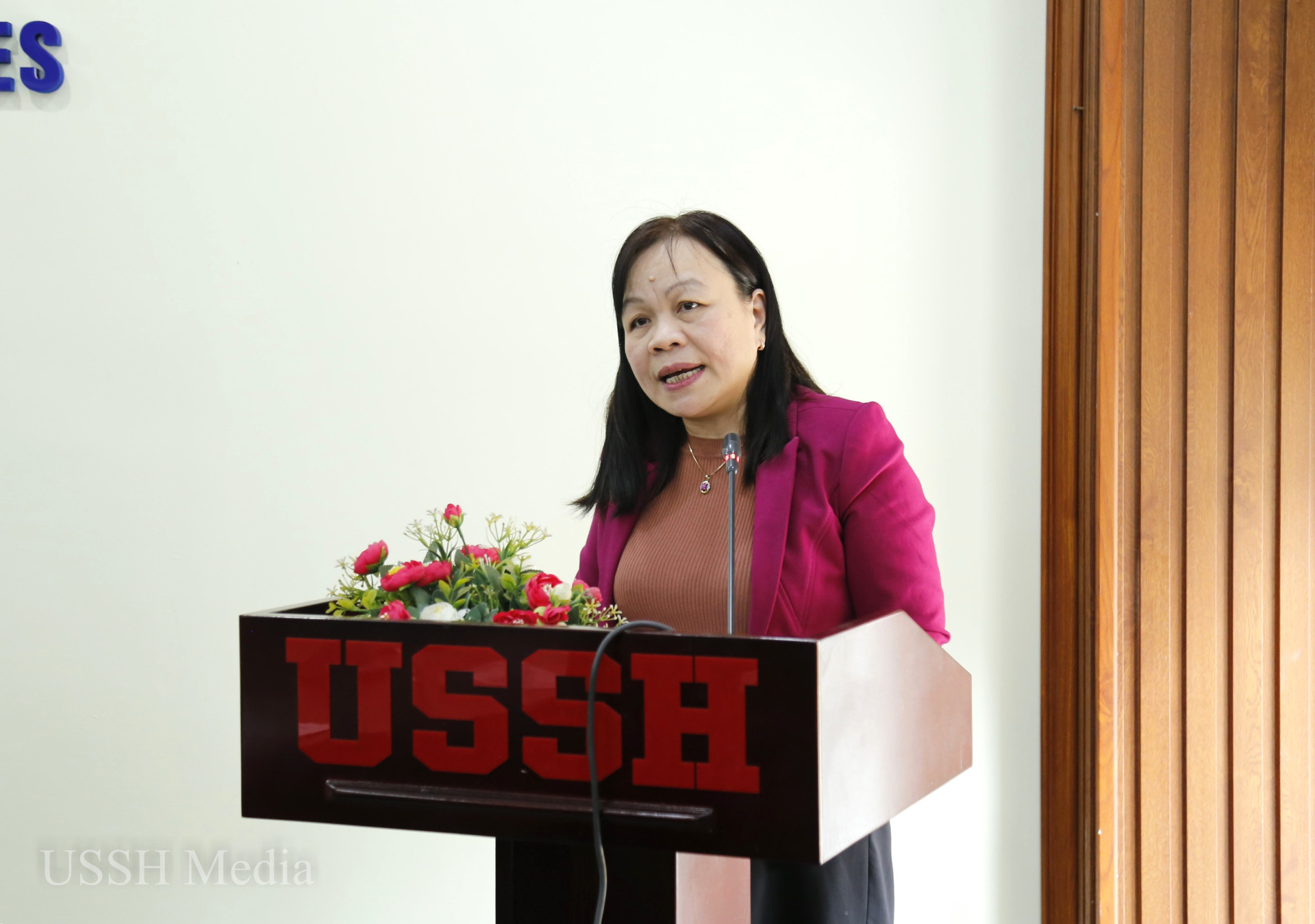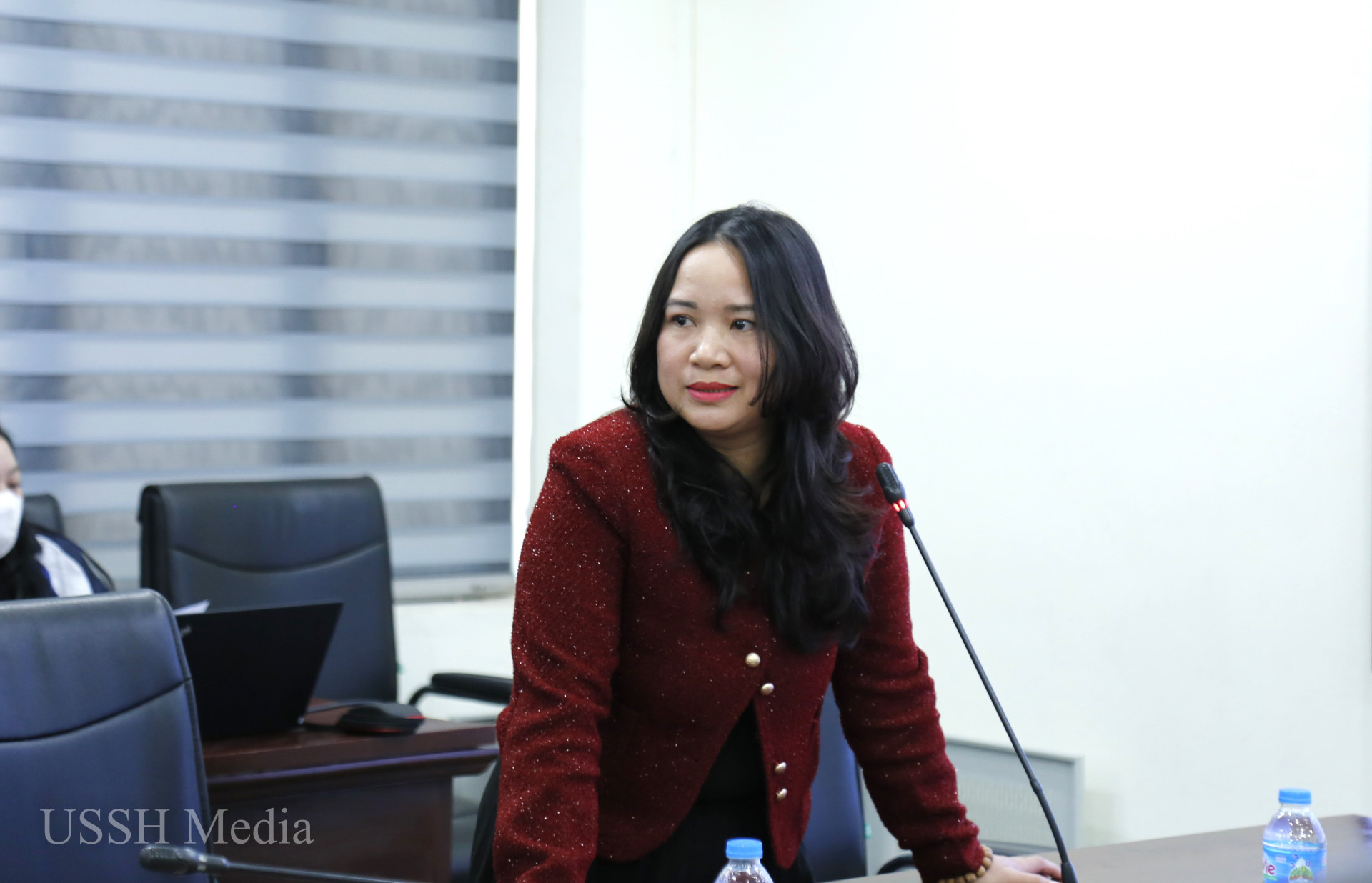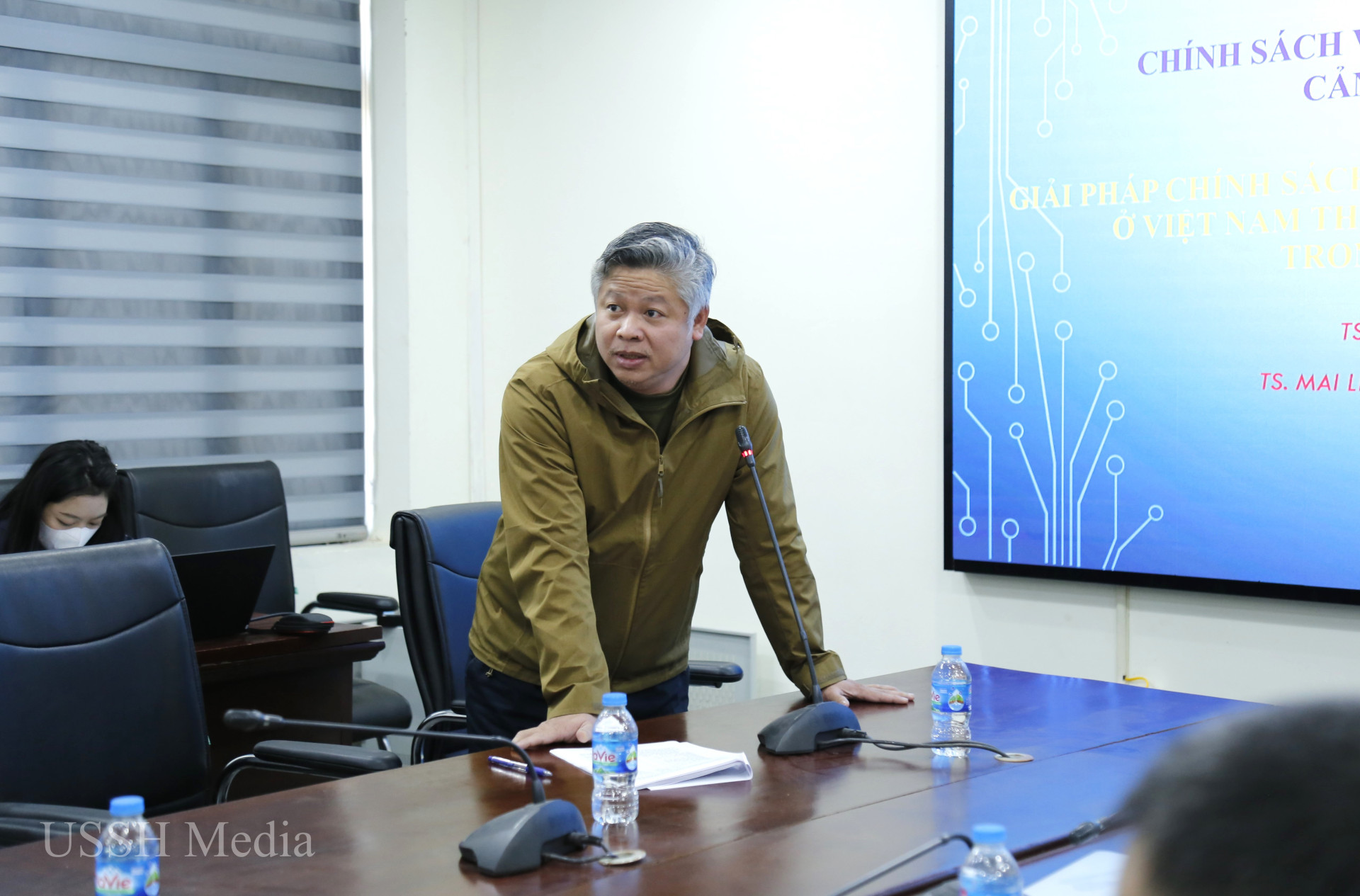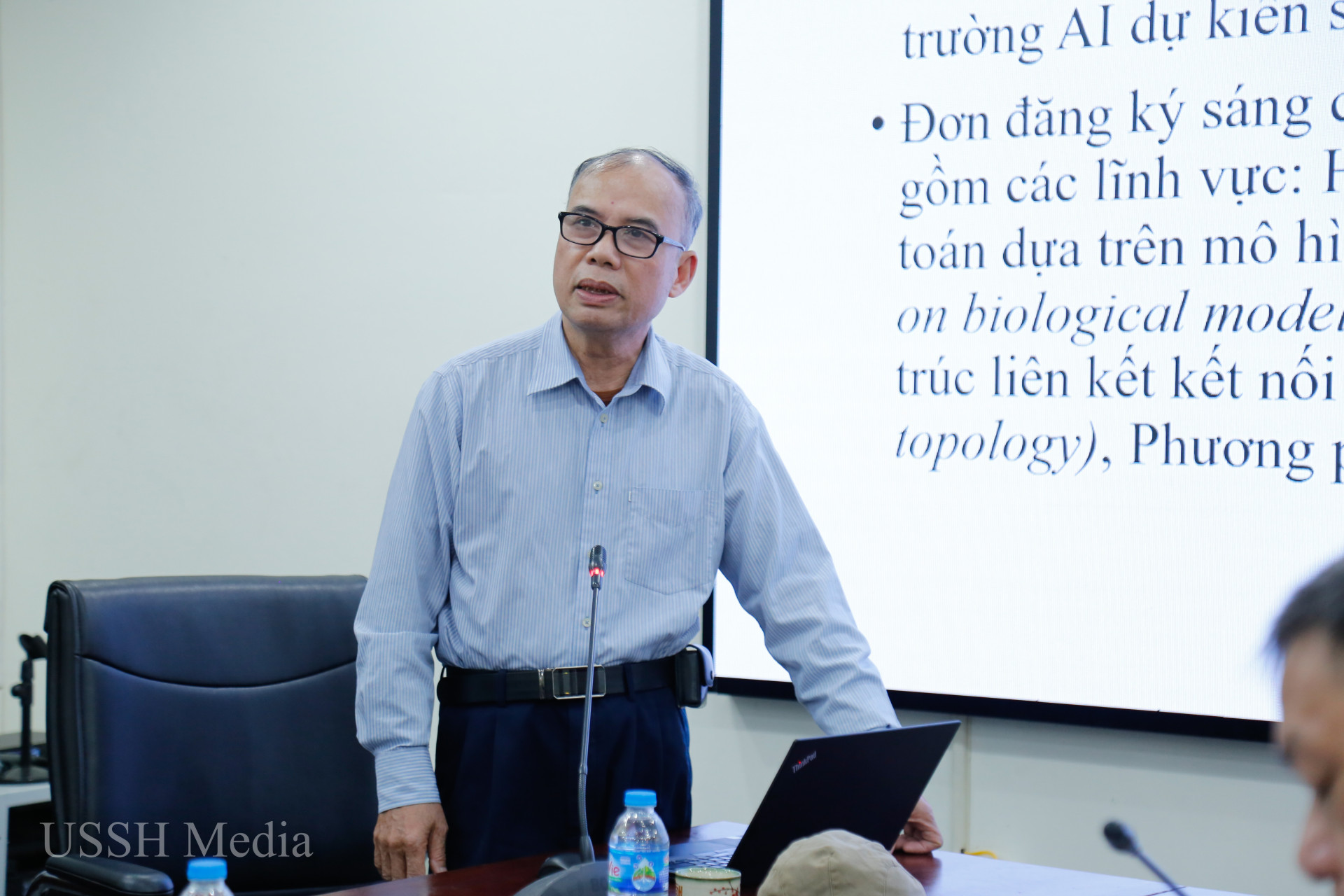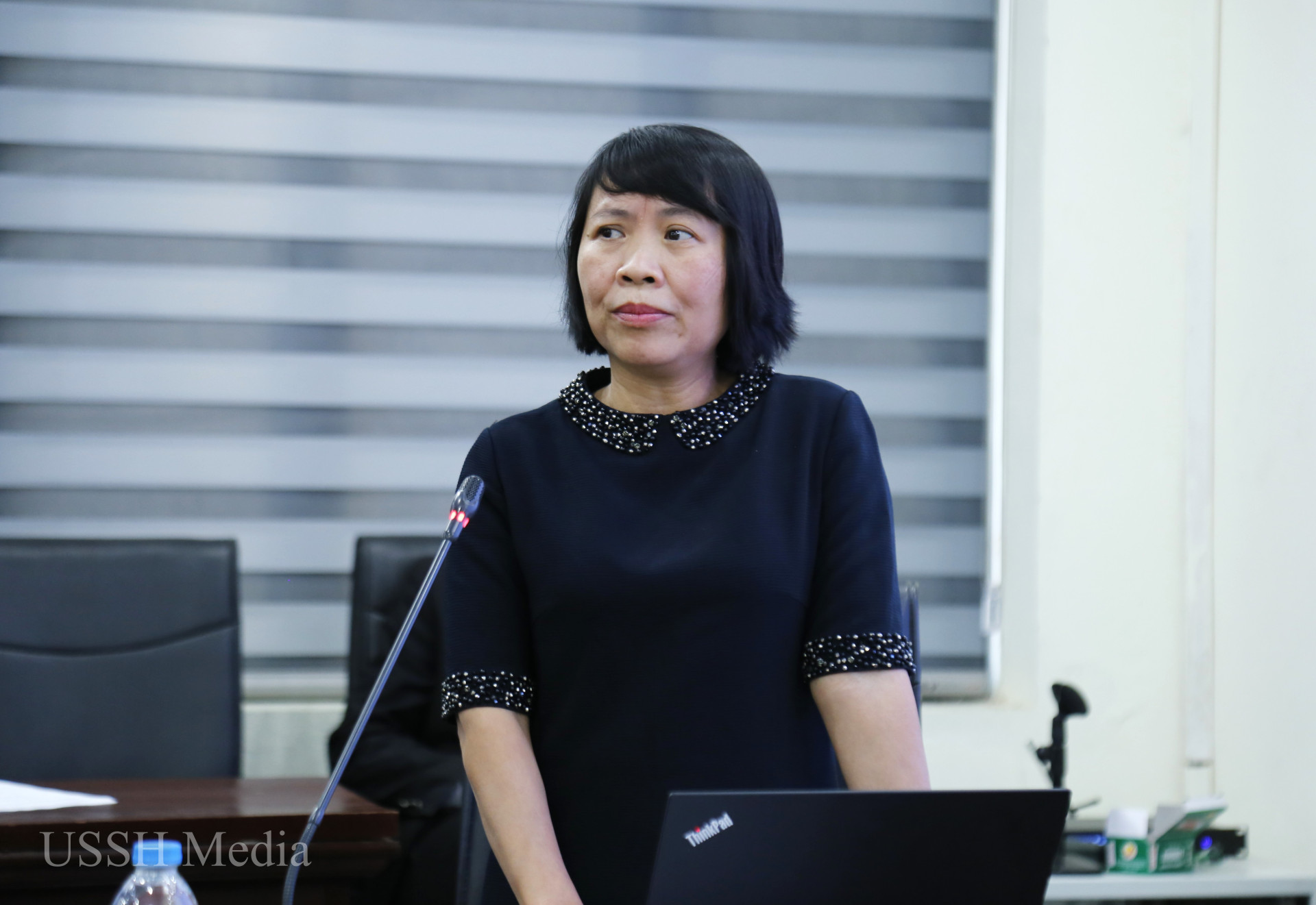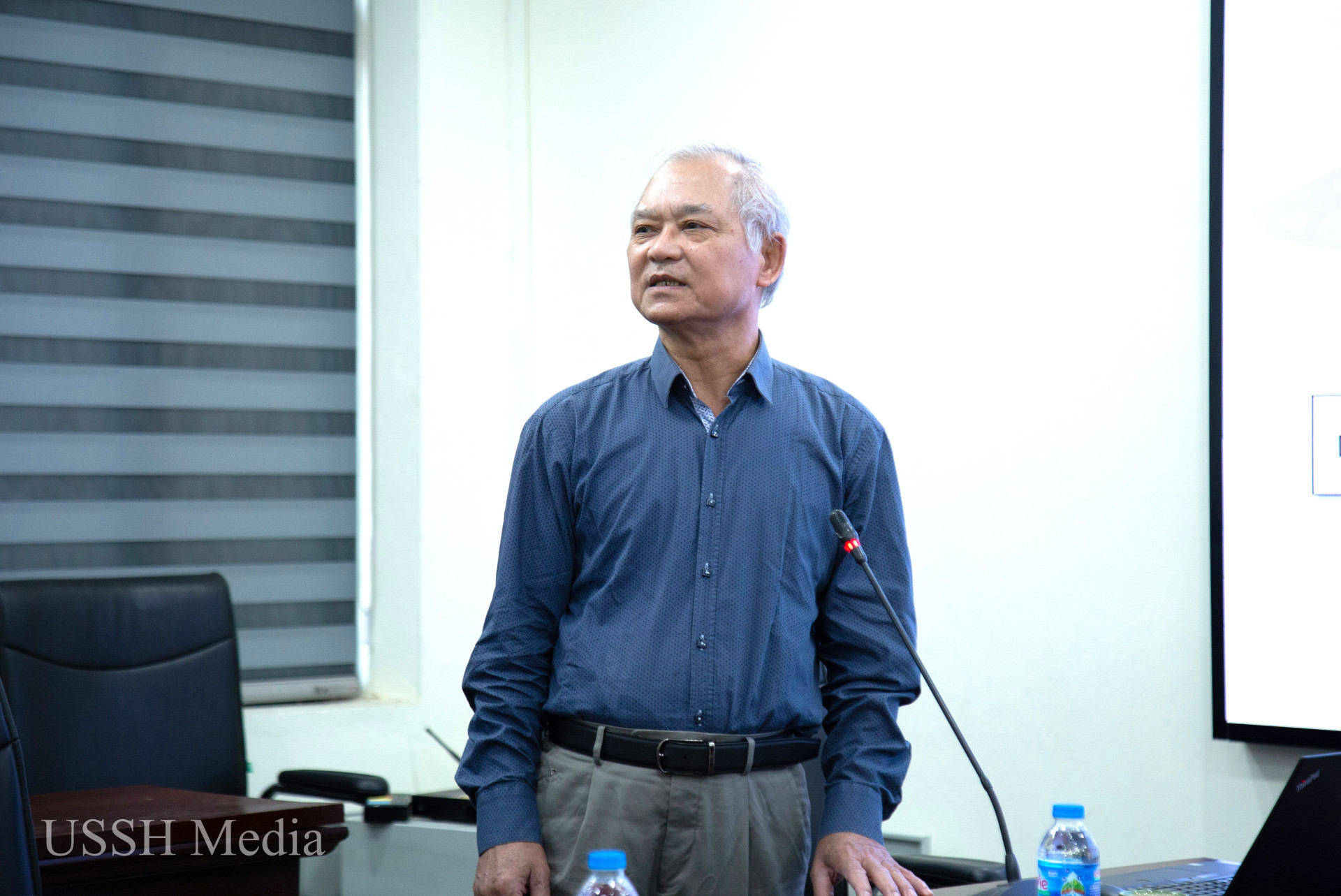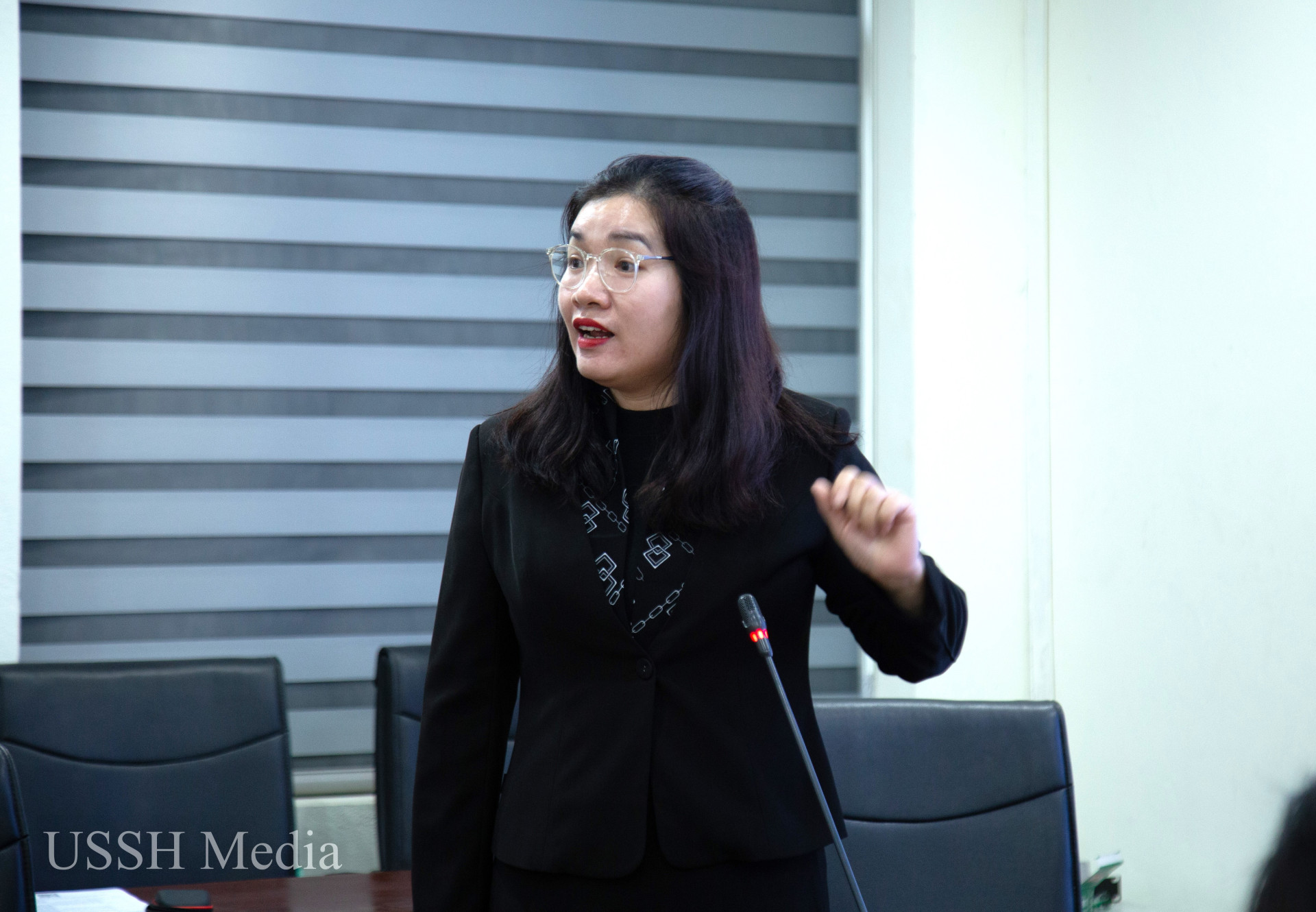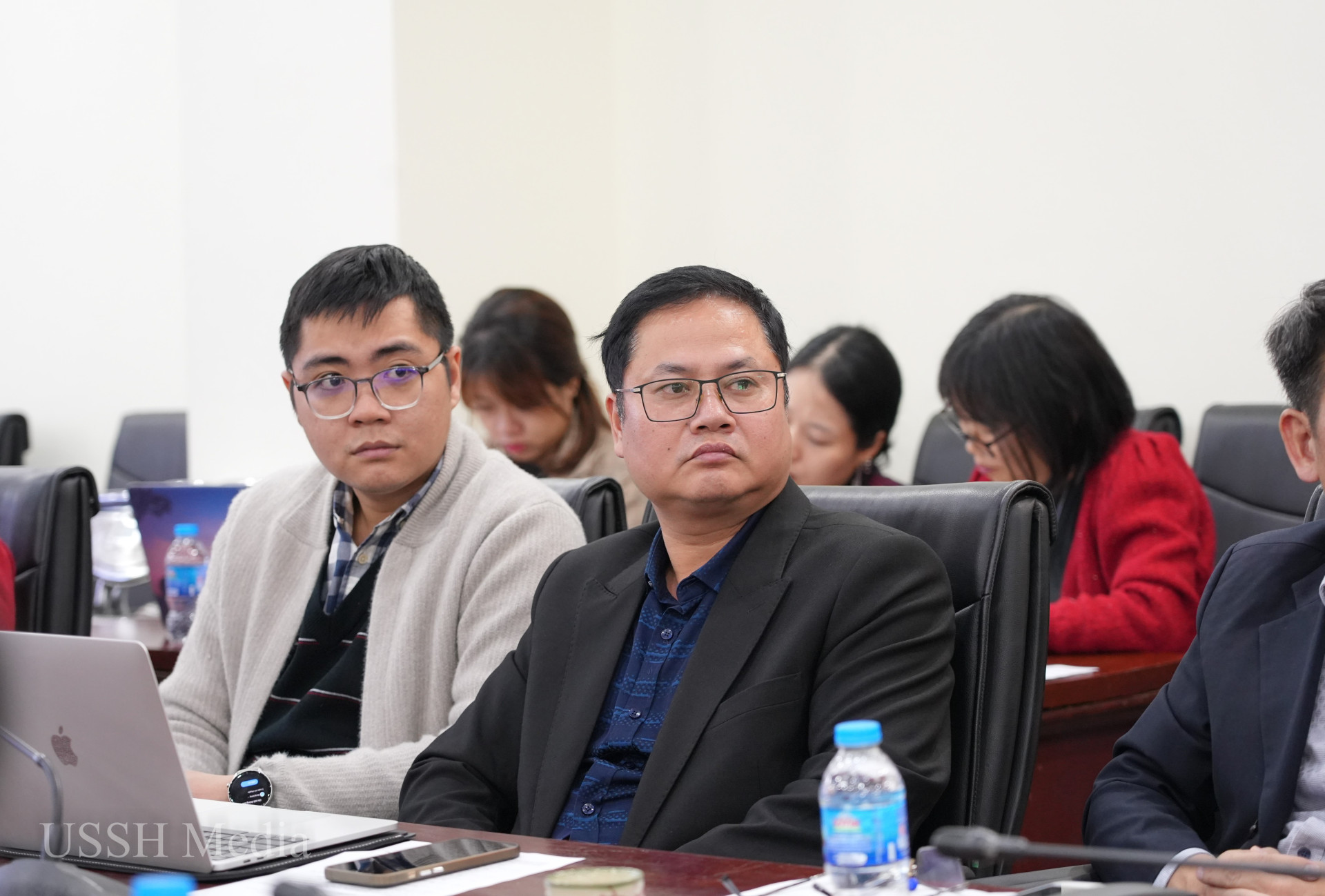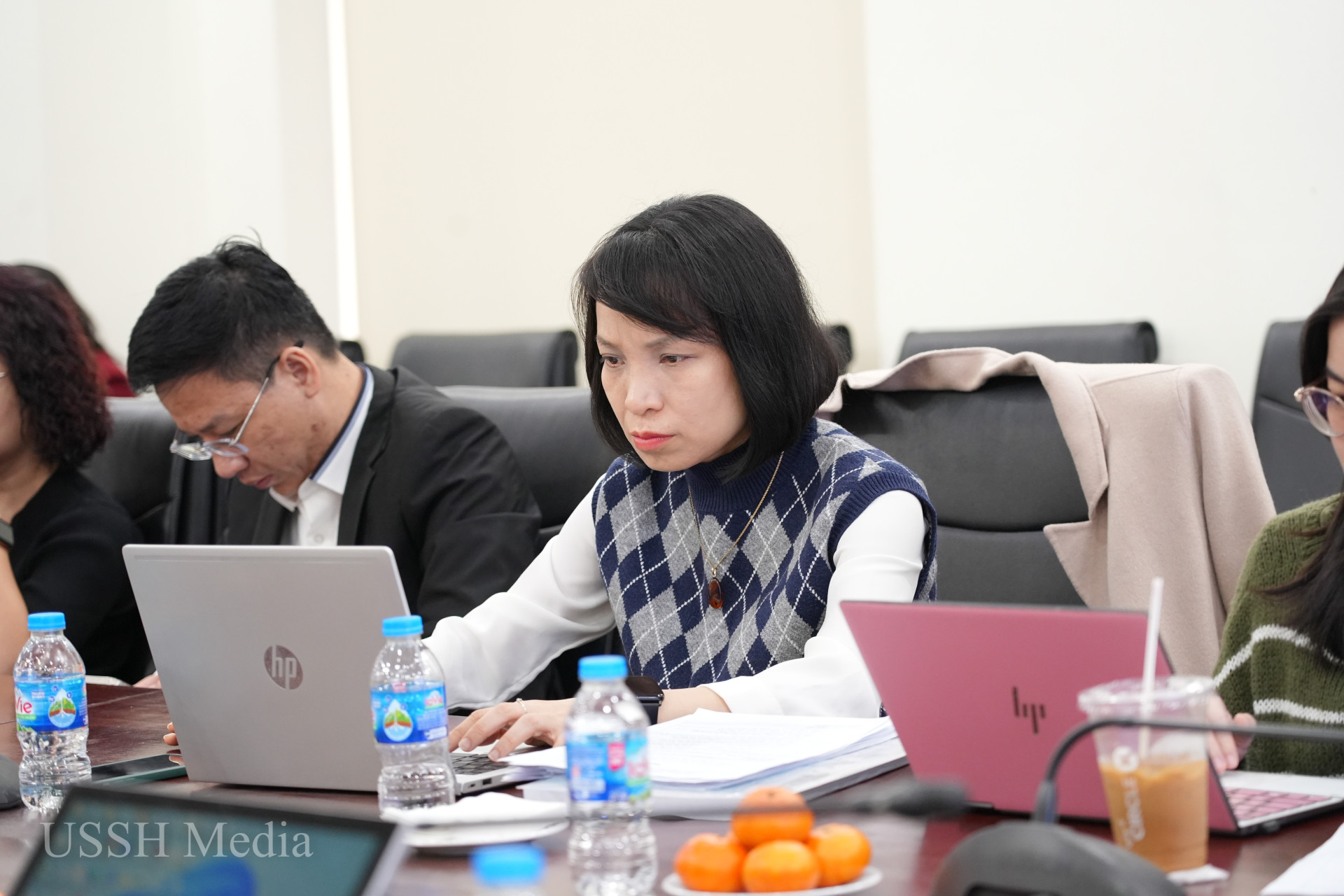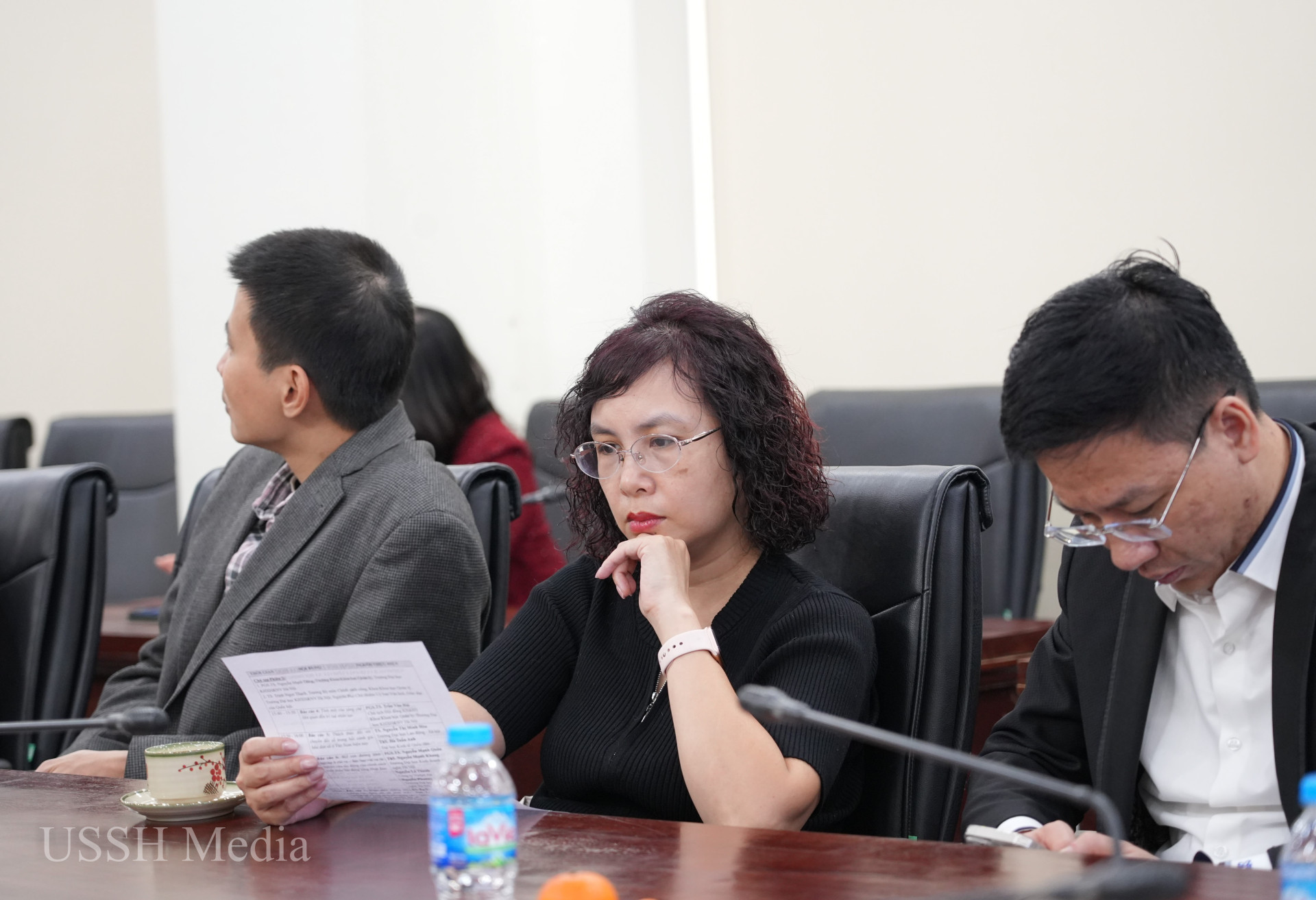The forum brings together scientists and managers.The workshop was attended by scientists and managers from state management agencies, universities, and businesses (the National Assembly's Committee on Culture and Education, the University of Social Sciences and Humanities, the National Economics University, the University of Labour and Social Affairs, the Hanoi University of Business and Technology, Vietjet Air, etc.).
In his opening remarks at the workshop, Assoc. Prof. Dr. Nguyen Manh Dung - Head of the Faculty of Management Science, University of Social Sciences and Humanities, Vietnam National University, Hanoi, assessed that digital transformation is taking place strongly and is a strategic factor in ensuring social welfare and sustainable development of the country. The workshop serves as an academic forum for scientists and managers to exchange views on policy and management issues in the social sector in the context of digital transformation in Vietnam.
Based on the identification and analysis of the issues discussed at the workshop, the scientists proposed many important solutions to advise and recommend to state management agencies to improve state policies and laws in this field.
Assoc. Prof. Dr. Nguyen Manh Dung - Head of the Faculty of Management Science, University of Social Sciences and Humanities, Vietnam National University, Hanoi, delivered the opening remarks at the conference.
Dr. Trinh Ngoc Thach, Assoc. Prof. Dr. Nguyen Manh Dung, and Dr. Nguyen Thi Mai Hoa chaired the workshop.
Discuss and provide policy advice on current policy and management issues.The workshop received 25 papers from scientists and managers from central agencies, Hanoi, and other provinces and cities.
The content of the papers was diverse, approaching the issue from many angles. In particular, the scientists emphasized five major issues: the importance of digital transformation; digital transformation in the social sector in Vietnam; opportunities and challenges in the context of digital transformation; policy and social management issues in the context of digital transformation; and policy and management solutions in the field of digital transformation.
The presentations provided profound theoretical and practical value on many issues, such as: Social security policy in the context of digital transformation in Vietnam (Dr. Bui Sy Loi - Former Vice Chairman of the Social Committee of the National Assembly), Policy communication in the context of digital transformation in Vietnam (Assoc. Prof. Dr. Nguyen Van Chieu - Head of the Department of Political Science, University of Social Sciences and Humanities); Social policy in the current national digital transformation environment in Vietnam (Assoc. Prof. Dr. Phan Thanh Khoi - Ho Chi Minh National Academy of Politics); Characteristics and trends in religious policy research: Bibliographic analysis from 1908 to 2024 (Dr. Nguyen The Thang, Dr. Trinh Ngoc Thach - University of Social Sciences and Humanities), Artificial intelligence in teaching and research in higher education: Potential and application possibilities (MSc. PhD Candidate Nguyen Thanh Tu - FPT University, Assoc. Prof. Dr. Nguyen Manh Dung - University of Social Sciences and Humanities)...
The issue currently under consideration is the draft Law on Teachers, which was officially added to the 2024 legislative and ordinance drafting program of the 15th National Assembly; it was first discussed at the 8th session and is expected to be passed at the 91st session.
In a preliminary assessment of the specific policies for teachers in the Draft Law on Teachers, Dr. Nguyen Thi Mai Hoa, Vice Chair of the National Assembly's Committee on Culture and Education, stated that education and training are key to the success of every nation; the future of a country can be predicted through its education system, and the quality of its education system can be envisioned through the quality of its teaching staff. With this significance, the draft Law on Teachers was officially added to the 2024 legislative agenda of the 15th National Assembly; it was first discussed at the 8th session and is expected to be passed at the 91st session.
Dr. Nguyen Thi Mai Hoa - Vice Chair of the National Assembly's Committee on Culture and Education, presented her paper at the conference.
According to Dr. Nguyen Thi Mai Hoa, during the discussion, based on the opinions of the delegates, several issues need further research and processing in the process of finalizing the draft Law on Teachers to avoid conflicts with some related laws, ensure feasibility when implementing the policy, and ensure fairness in the correlation between teacher policies and policies for other professions or the correlation in policies between generations of teachers.
So, what innovations does the new Law on Teachers bring compared to the old one? Dr. Nguyen Thi Mai Hoa shared her predictions of the positive impacts of the Law on Teachers upon its promulgation, including the fact that the education sector will be more proactive in recruiting, employing, and developing the teaching staff because there will be sufficiently strong legal sanctions to remove bottlenecks in teacher recruitment and employment in the past, attracting talented people to the teaching profession and retaining excellent teachers. This will standardize the quality of the teaching staff, contributing to improving the quality of the education system; and at the same time ensuring that learners have access to quality education.
Dr. Nguyen Thi Kim Chi - Deputy Head of the Faculty of Management Science, University of Social Sciences and Humanities, presented a paper on the role of businesses in training and developing sustainable human resources in localities: The correlation with training institutions.
Presenting a paper on the role of businesses in training and developing sustainable human resources at the local level - the correlation with training institutions, Dr. Nguyen Thi Kim Chi - Deputy Head of the Faculty of Management Science, University of Social Sciences and Humanities, proposed four models for human resource development when cooperating with businesses and training institutions: the dual training model, the "co-op" cooperation model, the local vocational training model, and the business academy model.
Accordingly, these models have been applied in many countries around the world, and in Vietnam, they have also been applied in some large enterprises and some localities.
Dr. Nguyen Thi Kim Chi emphasized that businesses play a vital role in promoting sustainable human resource training and development in localities, especially through cooperation with training institutions. This collaboration is not only key to ensuring training quality but also a decisive factor in the long-term development of both human resources and the local economy.
Dr. Nguyen Trung Hai - University of Labour and Social Affairs presented a report on policy solutions to promote the realization of social security rights in Vietnam through social work activities in the context of digital transformation.
The report on the novelty of an invention related to artificial intelligence by Assoc. Prof. Dr. Tran Van Hai - Chairman of the Scientific and Training Council of the Faculty of Management Science, University of Social Sciences and Humanities, attracted the attention of scientists at the conference.
Dr. Nguyen Thi Minh Hoa from the University of Labour and Social Affairs presented a paper on the challenges facing digital transformation in the context of Vietnam's current aging population.
Associate Professor Dr. Nguyen Manh Quan – University of Business and Technology presented a paper on the topic “BIJ: A Low-Risk Entrepreneurship Pathway – Lessons Learned from Research on the Impact of Labor Export Policies to Japan”
The workshop received lively discussions from scientists from the University of Social Sciences and Humanities and other management agencies and universities. It is expected that the workshop papers will be published in a proceedings volume, contributing many recommendations and solutions to relevant agencies.
Dr. Ta Bich Ngoc - Lecturer in the Faculty of Management Science, presented a report on "Improving Policies for Near-Poor and Newly Escaped-from-Poverty Households in Vietnam".
The workshop attracted the participation of lecturers and scientists.
